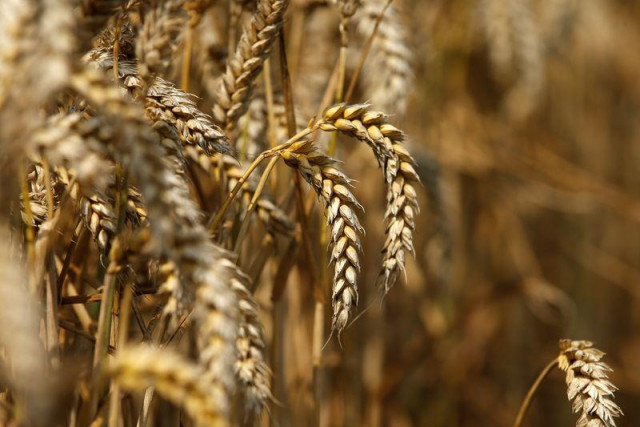Domino effect of Pakistan’s wheat crisis
Fiscal deficit and food inflation will rise; farmers will be hurt by imports

PHOTO: REUTERS
Over the course of a few months, wheat stocks plunged to approximately 4.2 million tonnes – barely enough to meet consumer demand for the next two months. In this article, we will unfold the domino effect of the current wheat scarcity.
The wheat scarcity should not come as a surprise. Mismanagement and uncalled-for state intervention have long been responsible for the dismal performance of various sectors including agriculture.
Government’s agricultural subsidies and procurement schemes have sent wrong signals to the producers. The unnecessary market intervention has opened avenues for hoarders and the black market.
It is pertinent to note that despite the ban on wheat export imposed in July 2019, the government allowed exports of 48,000 tons, which fueled price hike in the country.
Decisions like this are the reasons why such crises continue to emerge every now and then.
That said, the wheat deficit is likely to have certain repercussions for Pakistan’s economy and food security:
1) Increased fiscal deficit: Uncalled-for government intervention is followed by financing of these follies, which will further increase the fiscal deficit, and since imports are involved, the current account deficit will also widen.
2) Hurting farmers: Wheat import is likely to hurt the domestic wheat growers as a shipment of 300,000 tonnes is expected to reach Pakistan by mid-March, which is also the season when the crop gets ready in Sindh.
3) Altering cropping patterns: The wheat crisis, which was imminent from quite some time, is likely to spark a domino effect in other food crops by altering the cropping patterns.
In the face of water scarcity and in the hope of greater profits, the farmers are likely to substitute sugarcane production with wheat cultivation, thereby leading to its shortfall and a subsequent increase in its price. The recent surge in sugar price by Rs9 per kg is partially due to the substitution effect.
4) Sparking food inflation: Keeping in view the hike in prices of eatables, the food inflation is expected to rise further.
The Sensitive Price Indicator (SPI) recorded an increase of 19.69% over a year ago. After the wheat and sugar crisis, the Pakistan Cattle Feed Association and Dairy and Cattle Farmers Association are also demanding an increase in prices of milk to Rs150 per litre.
Since wheat flour, sugar and milk are among the 51 essential items included in the basket of goods and services used for calculating the SPI, an increase in their prices will further inflate the indicator and adversely affect the lower income segments.
Ostensibly, the government intervenes in the agriculture sector in the name of food security. This intervention in the form of support prices for various agricultural commodities has so far been a source of distress for Pakistan’s food security.
Each day a new association or union is demanding a price increase, which will further the case of another government intervention.
It is high time for the policymakers to dig deeper into the root causes of the past and current wheat flour (and other) crises, learn lessons and spell out clearly for all stakeholders as to what precautionary measures need to be taken to avert similar anomalies in the future.
The most important lesson perhaps here is trust the market and allow it to deliver, however, make sure that markets are not distorted by bureaucratic and political influences.
The writers are affiliated with PRIME Institute, an independent economic think tank based in Islamabad
Published in The Express Tribune, February 10th, 2020.
Like Business on Facebook, follow @TribuneBiz on Twitter to stay informed and join in the conversation.



















COMMENTS
Comments are moderated and generally will be posted if they are on-topic and not abusive.
For more information, please see our Comments FAQ